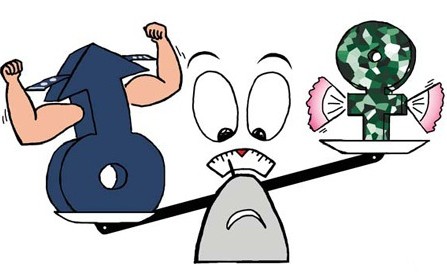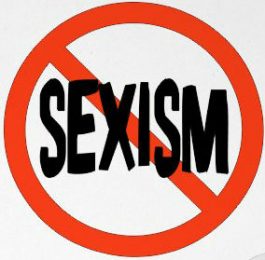-
Advocacy Theme
-
Tags
- Abortion
- Adoption
- Caregiving
- CEDAW
- Disability
- Domestic Violence
- Domestic Workers
- Harassment
- Healthcare
- Housing
- International/Regional Work
- Maintenance
- Media
- Migrant Spouses
- Migrant Workers
- Muslim Law
- National budget
- Parental Leave
- Parenthood
- Polygamy
- Population
- Race and religion
- Sexual Violence
- Sexuality Education
- Single Parents
- Social Support
- Sterilisation
- Women's Charter
Saying ‘no’ to seemingly harmless sexist views
January 8th, 2013 | Gender-based Violence, Letters and op-eds, News, Views
Few Singaporeans may intend to be sexist or think of themselves as such. But some instances show that sexism and violence against women have become so normalised that when people joke about rape, others accept it as funny.
By Corinna Lim, Vivienne Wee and Kokila Annamalai
THE brutal gang rape on a bus in Delhi of the young Indian woman who later died in Singapore matters to each of us, wherever we are, as violence against women is a worldwide issue.
Though most countries have laws to address this, violence against women remains a problem so long as social prejudice against women persists. As the Delhi case shows, cultural attitudes are the root of the problem, rendering even good laws ineffective.
At first glance, Singapore appears safe, a city where women have the freedom to walk down the street without fear of being assaulted.
Yet, the National Crime Prevention Council is running a campaign that tells women to “avoid walking through dimly lit and secluded areas alone” and to “have someone escort you home when it’s late”. Are we to infer that Singapore streets are not that safe for women after all?
Look closer, and a more nuanced picture emerges. Even in Singapore, women are vulnerable to physical and sexual violence.
The 2011 International Violence Against Women Survey showed that one in 10 women in Singapore has been a victim of male violence. The number of reported rapes a year rose from 118 in 2006 to 202 in 2009, although they dipped to 164 and 150 in the following two years.
But a rapist isn’t always a masked stranger hiding in the bushes. It is well documented by international research institutes that in seven out of 10 cases, perpetrators of sexual assault are known to the victim. Acquaintance-rape is heavily under-reported, and rape victims often experience greater humiliation and violation of trust after their ordeals.
The Straits Times ran several articles yesterday on the rape situation in neighbouring countries. It was reported that in Malaysia, rape rates had doubled; in Indonesia officials blame victims; and in Thailand, a similar culture of blaming victims still persists.
What about Singapore?
The fact is that Singapore, while progressive in its treatment of women in many ways, is not immune to sex crimes or sexist attitudes.
Gang rape exists here too.
In 2010, five young men in Singapore raped a 17-year-old woman. One of them was known to her. They tricked her into meeting them and got her drunk. According to media reports, they took their turn to hold her down and rape her, including orally, and left her bleeding from the trauma.
The men were arrested and the judge declared the crime “a gang sexual assault of a grave nature which the accused persons had perpetrated without her consent”. Yet, for reasons not disclosed to the public, the charges were reduced and the accused were found guilty of “aggravated outrage of modesty” rather than rape. There was little public reaction to this case.
The New Paper also reported in a 2011 article that gangs in Singapore routinely engage in gang rape as a male bonding ritual.
A local, former gang member who frequented parties where such rapes took place spoke to the media, saying: “We call some of them ‘lor kway’ (Hokkien for streetwalker) and some of them ‘ah dai’ (fools).”
“Lor kway” are girls who are considered to have loose morals, he said, while “ah dai” refers to a newbie who attends the chalet parties with no inkling that drugs and sex are involved. Another former gang member said that the victim is often a gang member’s girlfriend. “After everyone gets high, the boyfriend offers her to the rest of the guys.”
George Mason University’s Sexual Assault Services webpage says that in multi-perpetrator rape, men experience a “unity of purpose that comes from the pride they feel in reducing their victim to nothing”.
When men define their masculinity through sexual violence against women, the cost is dysfunctional gender relations that result in family violence and unsafe societies.
Few Singaporeans may intend to be sexist or think of themselves as such. But some instances show that sexism and violence against women have become so normalised that when people joke about rape, others accept it as funny.
Take this recent Facebook exchange between two male National University of Singapore students:
X (in Holland on holiday): “If I had a way, I’d stay in Europe forever…”
A: “Find a rich family girl. Rape her. Get to be his (sic) husband. Problem solved.”
X: “This is Amsterdam. They probably offer themselves up to u. Hard to rape the willing…”
A: “Oh my. Try to get someone that is innocent and pure.”
This exchange did not provoke the kind of outrage elicited by some recent racist posts, such as Ms Amy Cheong’s.
 Singaporeans are surrounded by images, language and music that make violence against women seem normal. From Eminem rap songs to glossy advertisements, the media sexualises and objectifies women while glorifying male aggression. The belief that to be male is to be sexually aggressive must be rejected.
Singaporeans are surrounded by images, language and music that make violence against women seem normal. From Eminem rap songs to glossy advertisements, the media sexualises and objectifies women while glorifying male aggression. The belief that to be male is to be sexually aggressive must be rejected.
Many sexual assault survivors who call the Aware helpline report that their moral character, behaviour and dressing are questioned by their family, friends and the police. Aware estimates that as many as 90 per cent of sexual assault cases are not reported to the authorities.
Singaporeans must challenge sexist attitudes which underlie everyday practices that appear harmless. It’s time for us, as a society, to say “no” to all forms of violence against women and to stop blaming women for the violence inflicted on them.
Corinna Lim is the Executive Director at AWARE, Dr Vivienne Wee is the Research & Advocacy Director at AWARE and Kokila Annamalai is the Communications Executive at AWARE. This piece was first published in The Straits Times on 08 Jan 2013.
3 thoughts on “Saying ‘no’ to seemingly harmless sexist views”
Comments are closed.





I find that the heavy reliance on gender norms and labels, combined with the lack of social studies subjects in schools play a huge part in sexism in Singapore. And it’s not just sexism that’s an issue; racism, homophobia, elitism, xenophobia all abound in this country.
Take the term “ang mo” for example. Many locals use it freely on Westerners but it’s also extended to individuals who have adopted more liberal and westernized mannerisms, accents, and ways of living. Personally, I find being called “such an ang mo” insulting. Just because I speak different, have different views on the world etc, does that warrant me a label?
The same goes for girls and women. Singapore society has perpetuated the notion that men are the stronger species. It is never more evident than the army ads that have been playing relentlessly in cinemas. Again, the lack of any representation of women in the Singapore army is insulting. All the ads were either a) a father rapping to his son about how the army offers male bonding and being strong b) a father and son journey through their respective army memories or c) a son and father both writing to their mother/wife about how much they miss her cooking and her nagging. Talk about stereotyping a woman. Then there’s the ad where three women visit a Chinese herbalist shop and prattle on about buying herbs to help their husband/boyfriend improve their eyesight/strength etc so that he can win some cash prize to take her to an expensive and luxurious dinner. Again, the ad is stereotyping women.
Unless Singapore does away with the labels and the gender stereotypes, issues such as sexism, xenophobia and racism will continue. I don’t even want to get started on the issue of homophobia. Prime Minister Lee Hsien Loong’s recent comments about maintaining Section 377A was ludicrous. Saying that because the law has always been there so it should be left alone was one the more backward and ignorant things the PM has publicly announced. It’s like saying, “well Jim’s always been a bit of a bully. I’m sure if we leave well enough alone, he’ll sort himself out.” This is not how things work in life; turning a blind eye or blatantly ignoring or pushing away an issue does not resolve anything. It makes things worse and halts progress and change.
Absolutely so. When the nation door opens wide to millions of foreigners, why would we expect these people exposed to different values, culture and regiment to respect the local rights?
If I were to come from a place whereby there is a police with gun at every street corner and here I don’t see one blue man except after someone died, what will stop the evil instincts in me to do wrongs thinking I can get away (…. Mas Selamat and others absconded easily, our custom seems to be strict and good on who comes in but not who wants to leave….).
The foreigner surge has raised the danger level of the civil rights, safety and protection of those that are weak and vulnerable in our society, who is championing for them? What beholds, come 2030? Guns for women?
Aware, thanks for highlighting but your voice has to be louder.
The point in life is to be self regulating rather than relying on some external authority to tell you how to behave!
The sooner we ALL grow up and develop a conscience and a sense of genuine humanity, then the sooner we dont need to be ‘policed’ or controlled by false authorities such as religion or paternalism etc.